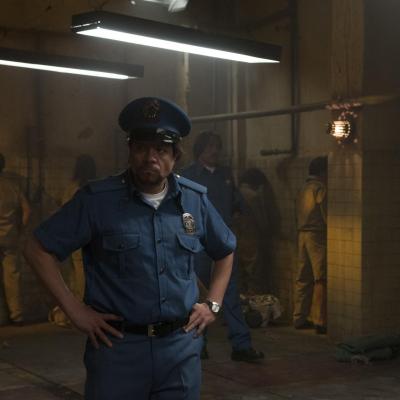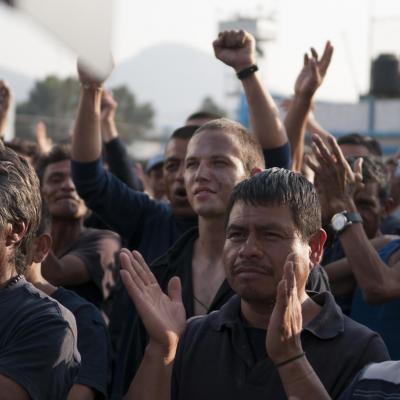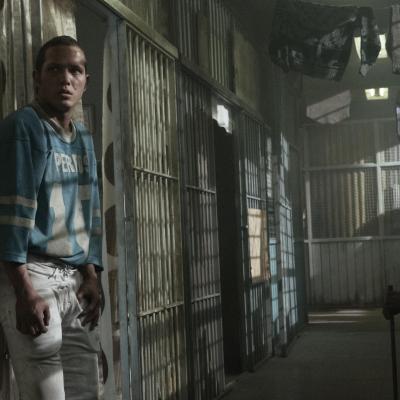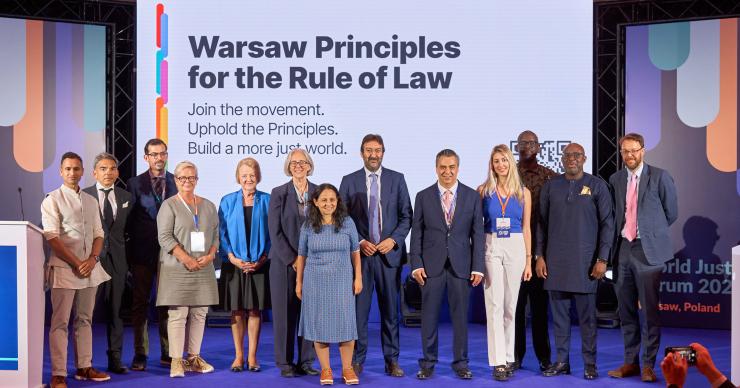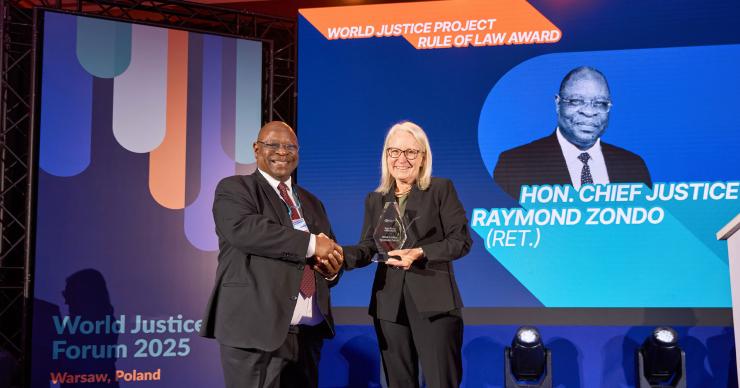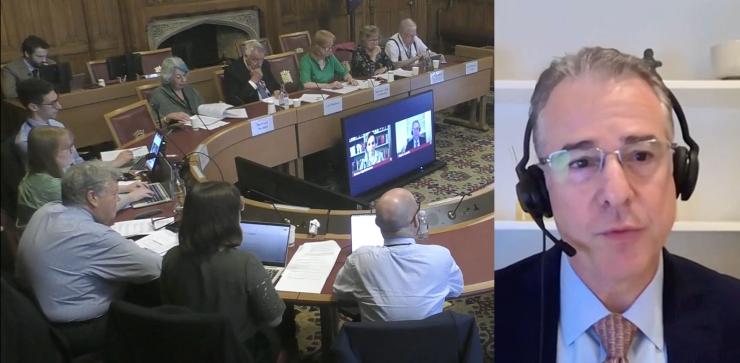
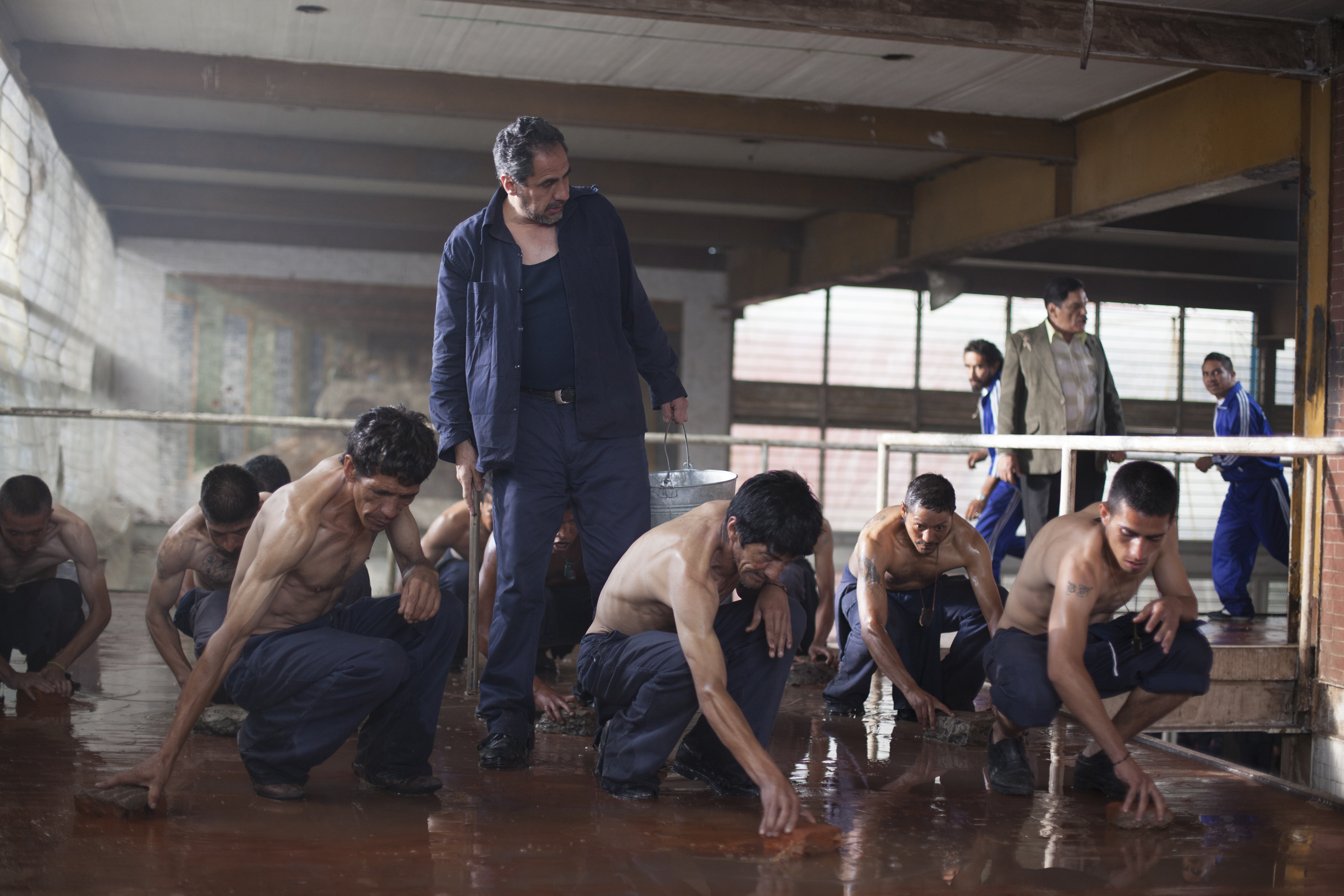
This spring, "The 4th Company" will be released worldwide as a Netflix original film. Based on a true story, the film portrays the incessant violence and corruption experienced by the inmates of Santa Martha Acatitla, a Mexico prison, during the 1980s. A network of crime and corruption thrives inside this prison due to a complete lack of governance, and inmates' human rights are constantly violated.
Many things have changed in Mexican prisons since the 1980s, mostly as a result of better laws, increased transparency, and more prevalent data. However, despite improvement in many areas, the Mexican prison system still faces significant challenges. This was confirmed by the WJP Rule of Law Index 2017-2018 which considered prisons to be the single most vulnerable component of the Mexican criminal justice system.
An effective criminal justice system is a key aspect of the rule of law, as it constitutes the conventional mechanism to redress grievances and bring action against individuals for offenses against society. For this reason, an effective criminal justice system is one of the eight factors included in the WJP Rule of Law Index, which measures adherence to the rule of law in more than 100 countries.
A complete assessment of the delivery of criminal justice must consider the system in its entirety, examining criminal investigations, the criminal adjudication system, if the system is impartial, free of corruption and free of improper government influence, due process of law, and incarceration. In the WJP Index, an effective correctional system is considered to be one in which the rights of inmates are respected, conditions of safety and security are guaranteed, and programming which prepares inmates for social reintegration is provided.
In short, a strong rule of law needs an effective criminal justice system, and an effective criminal justice system needs prisons that are secure, respectful of the rights of inmates, and effective in combating recidivism.
In the context of the movie "The 4th Company", the WJP analyzed data to illustrate the current conditions of the Mexican prison system. This information (in Spanish) is available on this page.
The WJP is committed to providing reliable information and diagnostic tools to encourage policy that strengthens the rule of law around the world. As part of this mission, the WJP staff is currently working on specific projects to evaluate the criminal justice systems of several countries, including Mexico. For more information, visit: https://worldjusticeproject.org/our-work/wjp-rule-law-index
Las cárceles son un componente fundamental del Estado de Derecho
Esta primavera se estrenará la película “La 4ta Compañía” a nivel mundial como original de Netflix. Basada en una historia real, la cinta refleja experiencias de violencia y corrupción en la Penitenciaría de Santa Martha Acatitla, en la Ciudad de México, durante la década de 1980. Describe condiciones de ingobernabilidad, violación constante a los derechos humanos de las personas privadas de la libertad, así como redes de delincuencia y corrupción.
Muchas cosas han cambiado en las cárceles mexicanas desde la década de 1980, principalmente como resultado de leyes más garantistas, mayor transparencia y mejores datos. A pesar de estos cambios, el sistema penitenciario mexicano todavía enfrenta grandes desafíos, como se confirma en el Índice de Estado de Derecho 2017-2018 del WJP, que evalúa a las cárceles como el componente más vulnerable del sistema de justicia penal mexicano.
Un sistema de justicia penal efectivo es un aspecto clave del Estado de Derecho, ya que constituye el mecanismo formal para reparar agravios y resolver delitos. Por esta razón, un sistema de justicia penal efectivo es uno de los ocho factores incluidos en el Índice de Estado de Derecho del WJP, el cual mide el respeto al Estado de Derecho en más de 100 países.
Una evaluación completa de la justicia penal debe considerar al sistema en su totalidad, incluyendo las investigaciones, el sistema de impartición de justicia, si el sistema es imparcial, libre de corrupción y libre de influencias indebidas, el debido proceso legal, y la calidad de las cárceles. En el Índice del WJP, se considera que un sistema penitenciario efectivo es uno en el que se respetan los derechos de las personas privadas de la libertad, se garantizan condiciones de seguridad, y se proporcionan programas que favorecen la reinserción social.
En resumen, un Estado de Derecho sólido necesita un sistema de justicia penal efectivo, y un sistema de justicia penal efectivo necesita cárceles seguras, respetuosas de los derechos de las personas privadas de la libertad, y deben ser efectivas en reducir la reincidencia.
En el contexto de la película “La 4ta Compañía”, el WJP analizó datos para ilustrar las condiciones actuales del sistema penitenciario mexicano. Esta información (solo disponible en español) se puede consultar en esta página.
El WJP está comprometido a proporcionar información confiable y herramientas de diagnóstico para fomentar políticas que fortalezcan el Estado de Derecho en todo el mundo. Como parte de esta misión, el WJP está trabajando en proyectos para evaluar los sistemas de justicia penal de varios países, incluido México. Para más información sobre nuestro trabajo, visite: https://worldjusticeproject.org/our-work/wjp-rule-law-index
ABOUT THE WORLD JUSTICE PROJECT:
The World Justice Project (WJP) is an independent, multidisciplinary organization working to advance the rule of law worldwide. Effective rule of law reduces corruption, combats poverty and disease, and protects people from injustices large and small. It is the foundation for communities of equity, opportunity, and peace—underpinning development, accountable government, and respect for fundamental rights. Learn more at: www.worldjusticeproject.org
MEDIA CONTACT:
[email protected]
(206) 792-7676



